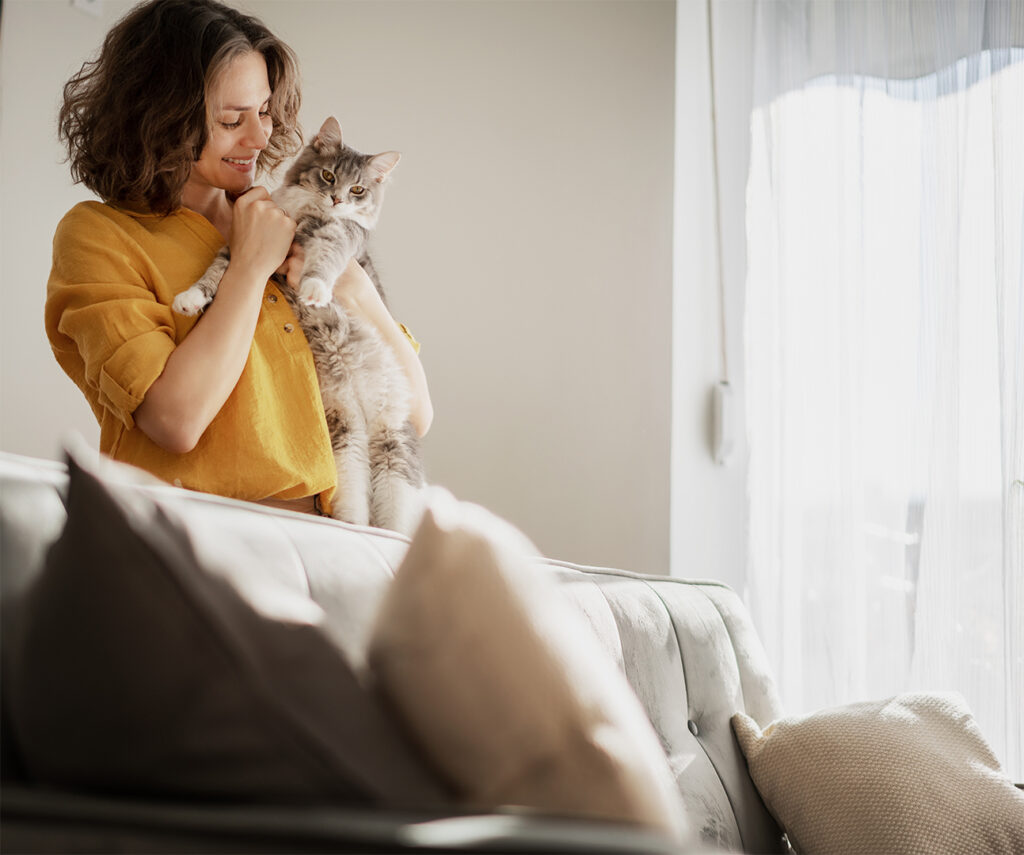
What is neutering?
Neutering is a surgical procedure that prevents pets from reproducing. In males, the operation is called castration and in females it’s called spaying. The best age to neuter will vary, so please book in a neuter check and we will advise you what’s the right time for your pet.
For more information about the procedure, you can check this blog out here.
Dog neutering
At roughly 6 months old, your dog will start going through puberty. In the case of male dogs, they may start to exhibit behaviours like aggression towards other dogs and people or become possessive with their toys or food. They may also start roaming and planning their escape to find themselves a female friend! Neutering can help to subdue or even stop these behaviours alongside a good training routine. For female dogs they will come into their first season at around the same age which may mean they attract the attention of male dogs. This may affect your exercise routine; a female dog that has come into season will need to be kept on a lead when out walking or be kept indoors during this period to avoid that opportunistic roaming male dog that may be on the loose!

Consultation
When you have a chat with your Vet, you will discuss several factors that will contribute to the best time to neuter your pet such as:
Breed
The Pet Vet recommends spaying dogs from 6 months of age, however larger breeds of dogs such as Mastiffs, Great Danes, Retrievers and Labradors will benefit more from waiting until they are around 12 months old before being neutered due to the amount of growing they have to do!
Behaviour
We talk about behaviour in our other neutering blog post and how it can be improved with this surgery, however if your dog exhibits a nervous behaviour, what could end up being a stressful trip to the Vet may not improve this. Seek advice from the Vet if this is a concern of yours.
Weight
As spaying and castration is conducted under a general anaesthetic, your dog needs to be at a good healthy weight. There is a higher risk of complications during surgery for overweight pets.
If you need any help with getting your pets in shape, take a look at our earlier healthy living blog post here.
Alternatively we have Weight Management clinics that can help you and your pet focus on a programme to lead to a healthier life.
You can find more information here.
Being in season/on heat
It is not advised to spay a dog that is in season and therefore it is recommended that you should wait until this has finished. If a dog is spayed during this time, it can be considered a risky surgery and can also cause other longer terms issues such as hormonal problems.
Cat neutering
As most cats tend to be free roamers, they will greatly benefit from being neutered. Much like their canine counterparts, it’s important to have a chat with your Vet to make sure that this is the right step to take for you and your feline friend.

Female cats
Spaying can be carried out at around 5-6 months and with cats often being free spirits and able to roam freely, you may want to consider getting this done as soon as possible. This will help to alleviate you of any stress and worry that your female cat could become pregnant which means she will need care through to the birth and the rearing of her litter.
Male cats
The boys can be neutered slightly earlier than the girls. They can be castrated from around 4 months but they must have reached a suitable weight by this point to go through with this surgery. Although it sounds young to have a surgery, it is often reassuring to know that younger cats will recover much quicker after surgery than adults.
Health conditions
If your pet suffers from other conditions particularly in the case of anything hormonal, it could affect the right time for neutering. Conditions such as diabetes for example will affect this. Your Vet will be able to advise you on the best time.
